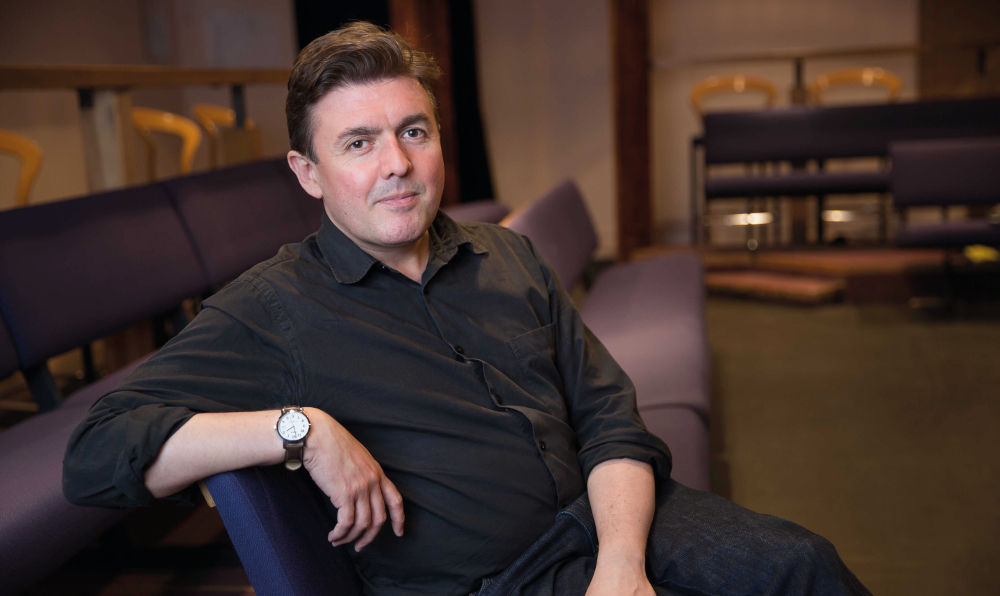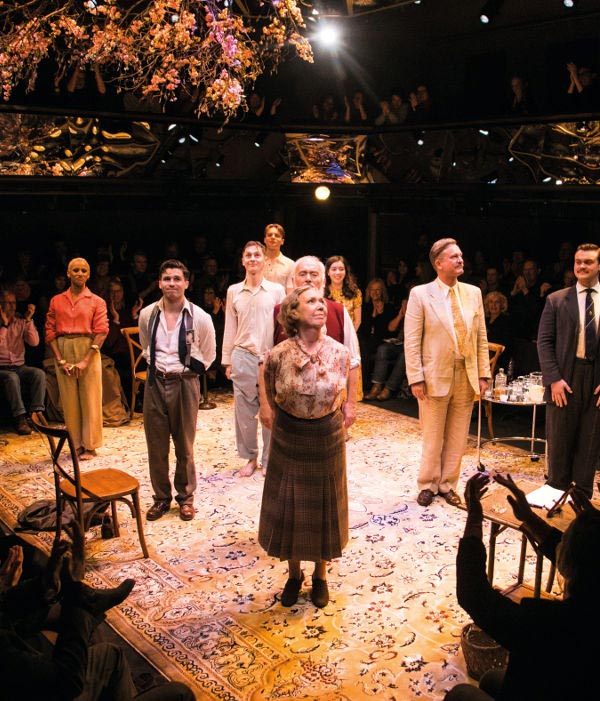
The Blossoming of Orange Tree Theatre
We talk to Paul Miller, artistic director, about the theatre’s rise…
Starting life above a pub, and only staging its initial performances in daylight hours with the audience sat on church pews, The Orange Tree Theatre has come a long way from its humble beginnings. Opened in 1971, Richmond’s independent producing theatre is not only very much embedded into the town’s fabric but also an influential presence in London and across the UK. It now sits across the road from its original site, offering theatre in the round, a broad spectrum of work – and comfier chairs.
Paul Miller, who is now into his fifth year at Orange Tree as artistic director, describes its ethos: “The aim is to be both epic and intimate at the same time, showing material you can’t see anywhere else. It’s a mix of new material and a rediscovery of plays that have been forgotten about but really shine when they are back in the spotlight and often have themes that are very relevant today.”
It’s a formula that is clearly working, with the theatre attracting record audience numbers and its work being taken out across the UK. Says Paul: “When I started I set out to get more of the world into the Orange Tree Theatre and more of the Orange Tree out into the world. We’ve collaborated with the likes of the English Touring Theatre and our work has also gone into repertoire at the National Theatre, which has been very rewarding.”
The theatre is very much a champion of up and coming talent and new voices and also works alongside St Mary’s University to provide an MA in Theatre Directing. August will see the third Directors’ Festival, which will showcase the talents of four directors from the course.
As a vital hub for emerging artists, it has won a great deal of industry recognition and accolades but it has also won a place in the hearts of audiences from both Richmond and beyond and been awarded the title of London’s Most Welcoming Theatre in the UK Theatre Awards. Says Paul: “The Orange Tree aims to be relaxed and we have great front-of-house staff, who are very welcoming. It is important for theatres not to come across as elitist and breakdown barriers to show that theatre is for all.”
“I set out to get more of the world into the Orange Tree Theatre and more of the Orange Tree out into the world.”
In the same vein, the theatre has several community programmes that make theatre accessible. “We have a local education and participation programme that is beyond the scale of what you might expect for a theatre of our size. We reach 10,000 young people, have six youth groups and have daytime productions for primary and secondary schools.”
One particularly innovative initiative is its interactive Shakespeare plays for those aged 10+ who are on the autistic spectrum. “The performances are specially devised and those watching are drawn into it as and when they want to be. It is incredible to see young lives changing in front of you as they start to engage with the play.”

For the year ahead, the theatre has some exciting new productions in the pipeline, including a major revival of Athol Fugard’s 1961 play Blood Knot. The story is set in apartheid South Africa and directed by Matthew Xia who won the 2013 Genesis Future Director Award for his production of Fugard’s Sizwe Banzi is Dead at the Young Vic.
Other highlights include the return of Zoe Cooper, following her hit play, Jess and Joe Forever, with Out of Water, a joint commission between the Orange Tree and the Royal Shakespeare Company. Paul will also direct the first major London production in a generation of Terence Rattigan’s Blitz-set comedy While the Sun Shines. The season kicks off in February with the premiere of Cougar, a new play by Rose Lewenstein.
Brexit and economic uncertainty will be among the challenges this year for everyone. Theatres are obviously not immune but Paul thinks they have a positive role to play: “People are anxious and there is a mood of paranoia. I think a theatre’s role is to reflect what is going on but also to bring people together.”
Given how the theatre has developed and gathered together a loyal and growing audience, it is in a strong position to try to do just that. “The theatre has been on such a journey since it started all those years ago above the pub. Many people have worked hard to make it what it is today,” says Paul.






